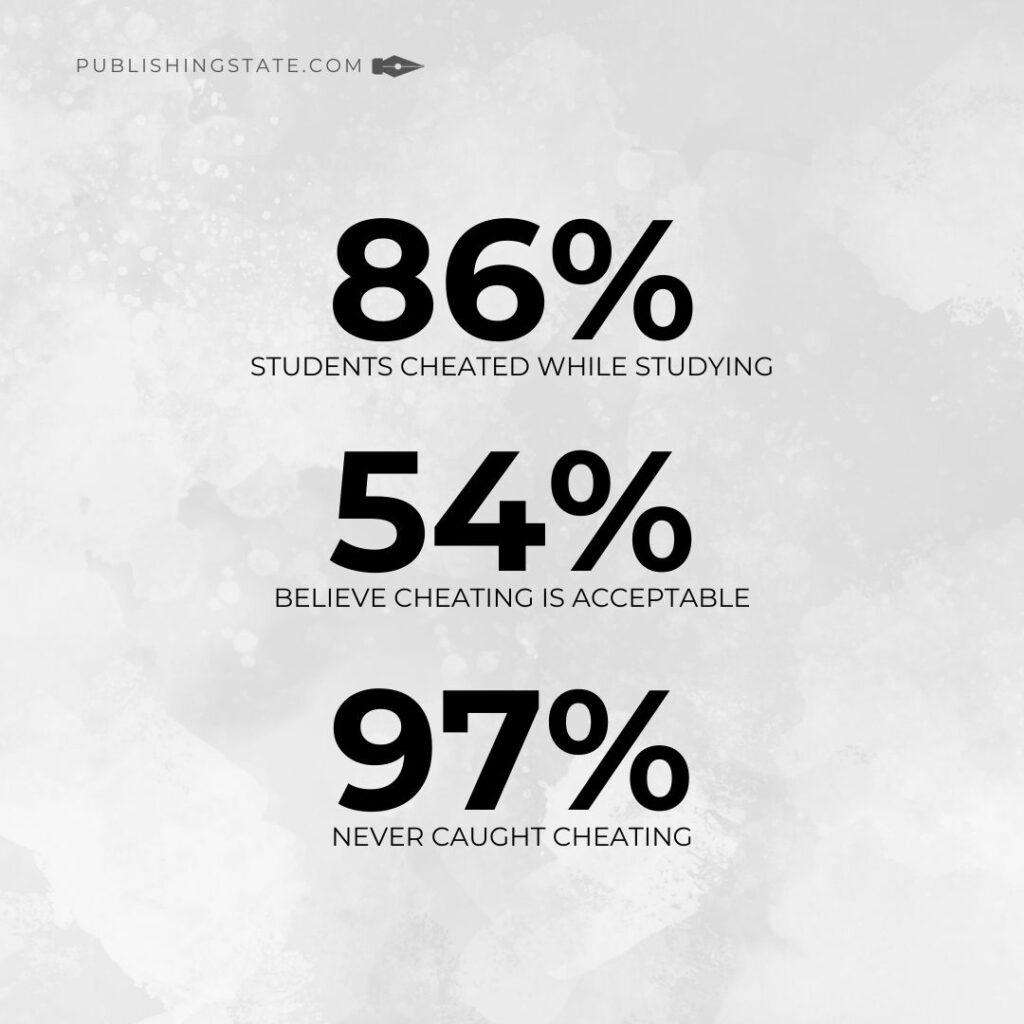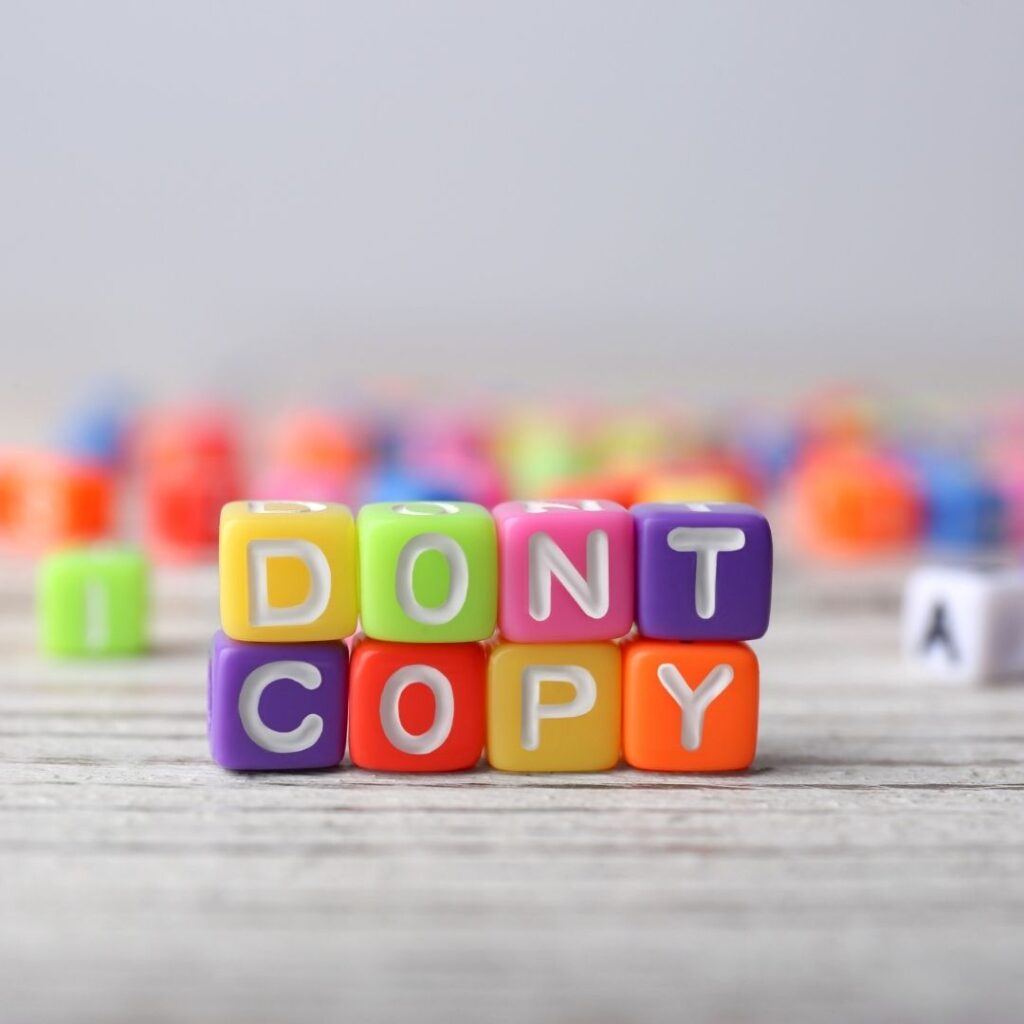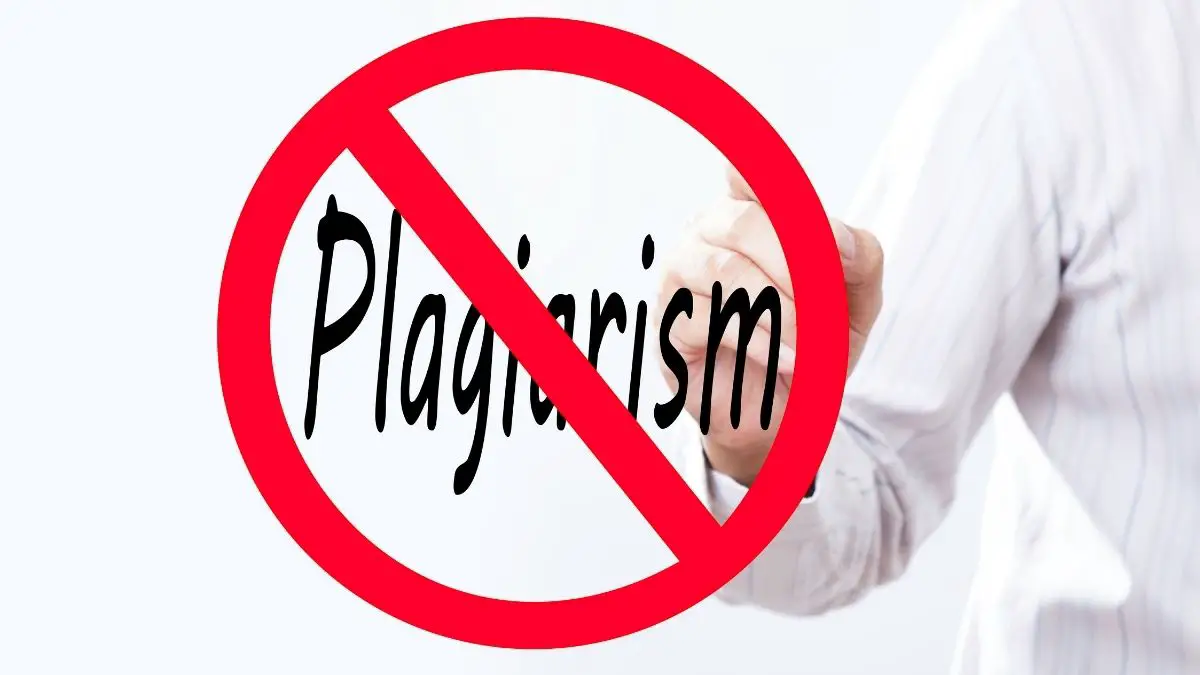Table of Contents
- Introduction
- Understanding Plagiarism in Academic Publishing
- The Ethical Issues Surrounding Plagiarism in Academic Publishing
- Why is Plagiarism Rampant in Academic Publishing?
- The Role of Academic Publishers in Addressing Plagiarism
- Conclusion
Introduction
Academic integrity is the bedrock of quality research and education. Without it, the entire academic enterprise falls apart. Unfortunately, plagiarism in academic publishing threatens this integrity and can have serious consequences for students, researchers, and institutions when left unchecked.
The risks of plagiarism are real, from expulsion to loss of funding and credibility. Despite the ethical mandate for original work, plagiarism appears to be rising in academia. Proactive measures are needed to reverse this trend and uphold ethics in research and writing. This write-up tackles plagiarism in academic publishing, analyzes the ethical implications, and explores some solutions.
The Importance of Academic Integrity
Academic integrity is of paramount importance in academia for several reasons:
Upholding standards. Academic integrity ensures that the standards of research and education are maintained. It is the foundation upon which scholarly work is built, ensuring that ideas and findings are genuine, accurate, and trustworthy.
Promoting originality. It encourages original thought and innovation. When students and researchers are held to a standard of academic integrity, they are pushed to create ideas and solutions, fostering an environment of creativity and intellectual growth.
Ensuring fairness. Academic integrity promotes fairness. Everyone is expected to produce their work, so grades and accolades are awarded based on individual merit and effort, not on someone else’s work.
Building trust. It establishes trust within the academic community and with the public. Other scholars can build upon that work with confidence when academic integrity is upheld, knowing it is reliable. The public can also trust the findings and knowledge disseminated by such institutions.
Protecting reputation. Institutions, researchers, and students all benefit from a reputation for academic integrity. It enhances their credibility and standing in the global academic community, opening up opportunities for collaboration, funding, and career advancement.
Fostering ethical behavior. Adherence to academic integrity principles also instills a sense of ethical responsibility in students and researchers, which is crucial in academia and all aspects of life.
Academic integrity is the cornerstone of academia, promoting originality, fairness, trust, and ethical behavior while protecting the reputation of individuals and institutions. Without it, the value and credibility of academic work are severely compromised.
In publishing, academic integrity requires authors to cite sources and ensure their work is original. Plagiarism violates these ethical standards by passing off others’ words or ideas as one’s own.
The effects of plagiarism can be far-reaching. Students may face disciplinary action or expulsion. Researchers could lose funding, jobs, and reputation. The credibility of academic work also declines when plagiarism diminishes trust. Upholding ethics in research and attribution maintains quality and advances knowledge.
The Rise of Plagiarism in Academic Publishing
Plagiarism, a serious form of academic dishonesty, is prevalent in academia. It involves stealing ideas from a source without giving proper credit to the author, and it’s considered fraud when the writer represents these ideas as their own. Despite the potential consequences, many students still engage in this unethical practice.
According to various studies, the statistics related to plagiarism in academia are alarming. A study by Kessler reported that 86% of students cheated while studying, and 54% believed cheating was acceptable or necessary to stay competitive. Shockingly, 97% of those who cheated were never caught.

A study by Professor Donald McCabe involving 1,800 college students found that some percentage turned in fake term papers, around 40% cheated on written assignments, and 38% plagiarized one or more sentences for a paper.
Despite ethical codes prohibiting plagiarism, surveys indicate it is increasing in academia. Factors like competitive pressures, lack of understanding, and new technologies that facilitate copying contribute to this rise.
Proactive efforts are required to reverse this trend through education, plagiarism-detection software, honor codes, and enforcement of consequences. Combating plagiarism protects individuals, institutions, and fields of study from losing credibility. Academic solid integrity is critical for quality research and education.
The Focus of This Article
This writing examines plagiarism, specifically within academic publishing, analyzing its ethical implications and proposing solutions. Upcoming sections will define plagiarism in this context, discuss associated ethical issues, explore publishers’ responsibilities, examine a case study, and provide recommendations.
The goal is to bring greater awareness to this problem and uphold ethics across academic publishing. Maintaining integrity is vital for advancing knowledge and education.
Understanding Plagiarism in Academic Publishing
Plagiarism in academic publishing refers to the unethical practice of appropriating another author’s work and passing it off as one’s original writing. It involves failing to credit the sources used in research and writing correctly. There are several common forms of plagiarism that authors may commit intentionally or unintentionally:
Direct Plagiarism
This involves copying verbatim from another source without quotation marks or giving proper credit to the original author. It is the most blatant form of plagiarism.
Paraphrasing Plagiarism
This involves taking ideas, words, or passages from a source and rewriting them without providing attribution. Even if the wording is changed, paraphrasing content without crediting the source is considered plagiarism.
Self-Plagiarism
This refers to reusing substantial portions of one’s own previously published work without acknowledging that it has been published before. It is considered a dishonest duplication of one’s work.
Mosaic Plagiarism
This involves borrowing phrases, ideas, or facts from multiple sources and piecing them together without citation. This patchwork of other people’s work is presented as an original analysis without crediting the sources.
Plagiarism has serious consequences in academic publishing as it undermines trust in research. Passing off others’ work as one’s own to gain undeserved credit damages the integrity of science. It can lead to retractions and destroy authors’ credibility.
Publishers thus take plagiarism very seriously and have policies to detect and penalize it. Addressing plagiarism is vital to upholding ethics and honesty in academic writing.
The Ethical Issues Surrounding Plagiarism in Academic Publishing
Plagiarism violates academic ethical standards by taking credit for someone else’s work. When a researcher or author plagiarizes, they steal ideas, words, or findings without adequately attributing them to the source. This shows a lack of respect for intellectual property rights and undermines academic integrity.
Taking Credit for Others’ Work
Passing off others’ writing or ideas as one’s own is perhaps the most straightforward example of the unethical nature of plagiarism. By not citing sources, plagiarizers falsely present themselves as the originators of certain concepts or phrases.
This allows them to take credit for work they did not do inappropriately. Failing to attribute authorship correctly misrepresents the plagiarizer’s contribution and violates principles of honesty and fairness.
Violating Intellectual Property Rights
Closely related is how plagiarism infringes on intellectual property rights. When an author or researcher puts effort into developing ideas and publishing their work, they own that creative output.
Plagiarism disregards this ownership by using others’ expressions of ideas without permission. This theft of intellectual property denies original authors their due recognition and compensation. Respecting rights over creative works is an important ethical obligation.
Damaging Academic Reputations
By deceitfully enhancing their reputation through plagiarism, academic authors simultaneously damage the reputations of those they steal from. If the original work goes uncited, the plagiarizer receives undue credit and recognition that rightfully belongs to the original author.
This can prevent the original authors from gaining the academic standing they deserve based on their work. Plagiarism unjustly elevates the plagiarizer while suppressing the plagiarized. In summary, plagiarism raises major ethical concerns by falsely claiming credit, violating rights, and damaging academic standing.
Maintaining integrity requires properly acknowledging sources, demonstrating respect for others’ intellectual property, and allowing recognition to go where credit is due. Avoiding plagiarism is crucial for upholding ethics in academic publishing.
Why is Plagiarism Rampant in Academic Publishing?
Plagiarism is rampant in academic publishing due to several reasons.
Pressure to Publish
The academic environment often operates on a “publish or perish” mentality. Researchers and academics are under immense pressure to publish their work frequently to maintain their standing, secure funding, and progress in their careers. This pressure can lead some individuals to resort to plagiarism as a shortcut.
Lack of Understanding
Not all researchers and writers fully understand what constitutes plagiarism. Some may not realize that rephrasing another’s work without proper citation or self-plagiarizing from their previous works also counts as plagiarism.
Ease of Access
The internet has made it easier than ever to access and copy others’ work. With many articles, research papers, and reports available online, the temptation to plagiarize can be vital, especially when faced with tight deadlines or complex topics.
Insufficient Consequences
If institutions do not adequately enforce penalties for plagiarism, individuals may feel they can plagiarize without facing significant consequences. The perceived risk of getting caught might be low, encouraging unethical behavior.
Cultural Differences
In some cultures, the concept of intellectual property is not strongly established or respected. What might be considered standard practice in some regions could be viewed as plagiarism in others.

Poor Academic Skills
Some researchers might struggle with language proficiency, writing skills, or understanding how to paraphrase and cite correctly. They might copy others’ work instead of seeking help or improving their skills.
Addressing these issues requires concerted efforts from educational institutions, publishers, and individuals. Increased awareness, stringent penalties, robust plagiarism detection mechanisms, and fostering a culture of integrity can help mitigate the problem.
The Role of Academic Publishers in Addressing Plagiarism
Academic publishers play a critical, yet often overlooked, role in maintaining integrity and trust in research. As gatekeepers of scholarly communication, publishers are responsible for addressing plagiarism allegations in their papers. Here are some key ways publishers can tackle plagiarism:
Conducting Plagiarism Checks
Many academic publishers now use plagiarism detection software to screen papers in journal publishing. This allows editors to identify potential cases of plagiarism and take appropriate action, such as requesting revisions or rejecting the paper. Using robust plagiarism checkers is an essential first step for publishers.
Investigating Allegations
When credible allegations of plagiarism arise post-publication, the publisher must launch a formal investigation. This involves contacting the authors, analyzing the evidence, and making an impartial determination. Depending on the severity, consequences may include printing a correction notice, retracting the paper, or banning authors.
Implementing Plagiarism Policies
Clear plagiarism policies, consistently enforced, are the cornerstone of a publisher’s approach. Policies should define plagiarism, outline the investigation process, and state potential sanctions. They remind authors of expectations and reassure readers of the publisher’s commitment to integrity.
Providing Plagiarism Guidance
Through instructions to authors and workshops, publishers can educate researchers about plagiarism and how to avoid it. Topics include proper citation, fair use of others’ work, and best practices for writing literature reviews. Proactive training makes authors partners in tackling plagiarism.
Collaborating with Institutions
Publishers need to collaborate with their institutions when investigating plagiarism cases involving researchers. This ensures appropriate disciplinary action is also taken locally, strengthening deterrence. A united front is key.
Being Transparent
Publishers serve science best by being transparent about plagiarism cases. Retraction notices should clearly state the reasons, while anonymized case studies can educate researchers. Responsible transparency maintains trust in both the publisher and academic publishing overall.
Conclusion
Plagiarism in academic publishing undermines research integrity and erodes public trust in scholars. As this blog post has shown, plagiarism violates ethical standards by taking credit for others’ work and can damage professional reputations. To maintain the credibility of academic literature, we must take a strong stance against plagiarism.
As authors, we are responsible for properly citing sources and ensuring our writing represents our ideas and analysis. Quoting verbatim from other works without attribution constitutes plagiarism, as does paraphrasing someone else’s ideas without credit. Using plagiarism detection software can help authors avoid unintentional plagiarism before submitting their work.
Academic publishers also play a key role in upholding integrity. Editors and reviewers must diligently screen for plagiarized content, while publishers need clear policies to investigate allegations. As seen in the case study, applying ethical frameworks to decisions about plagiarism sets a tone of accountability.
Finally, academic institutions should promote cultures of honesty through honor codes, ethics training, and support systems. With plagiarism on the rise globally, a multifaceted approach is needed. Authors, publishers, and institutions must work hand-in-hand to prioritize academic integrity.
The stakes are high. Plagiarism distorts the scientific record, misleads readers, and undercuts advancement. By taking a strong ethical stand, we protect education and knowledge creation ideals.

7 thoughts on “The Case of Plagiarism in Academic Publishing”